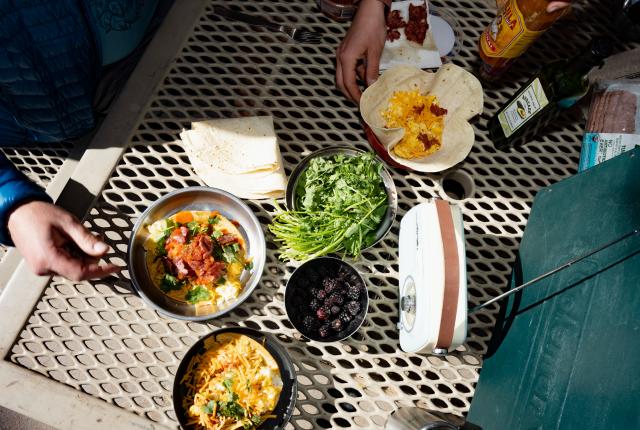TOBY VELASQUES HAS worked in New Mexico’s state parks for more than 20 years, so he understands that the outdoors can intimidate those who weren’t raised on hiking, fishing, or camping. But not to worry. “Breaking down those barriers is part of our goal,” says Velasquez, state parks director. “There’s nothing better than watching a person—whether they’re four years old or 80 years old—catch their first fish or pilot their first kayak trip or walk their first trail. Then to see them coming back makes it all that much more rewarding.”
You are not alone. “We have people there that can help you,” he says. Thirty-one parks have staffed visitor centers, where volunteers can field questions and aid with last-minute supplies, like ice. Campgrounds often include a seasonal “host.”
Find your comfort level. With lots of developed campsites and campgrounds with water, as well as shade structures, picnic tables, grills, and bathrooms that include hot showers in 24 of the 35 parks, the creature comforts of home don’t have to be left behind. Once you’re comfortable in these settings, try a more secluded experience or primitive campsite, which have fewer amenities (perhaps pit toilets) or may require walking from the parking area to the leveled, packed dirt area for the tent.
Do a dry run. Check your equipment ahead of time rather than suffering through setting up an unfamiliar tent in the dark (let alone in the rain or wind).
Pack wisely. Bring sturdy shoes well-suited for uneven ground and a headlamp or flashlight for finding your way around camp and to the bathhouse after dark. Temperatures can swing 40 degrees between day and night, so jackets, sweatshirts, and other warm layers may be necessary even after hot, sunny days.
Follow current campfire rules. Pack a shovel and enough water to douse the fire, if flames are allowed. When fires are forbidden, bring an alternative, like a headlamp in an empty, wide-mouth plastic water bottle, solar-powered lanterns, or battery-powered lights.
Be bear aware. Secure food at night in lockers or in a locked car. Never bring food or other smelly, potentially enticing personal items in the tent.
Plan ahead. State parks have transitioned most campsites to an online reservation system. Special circumstances, including fires, can close parks for even day use.



